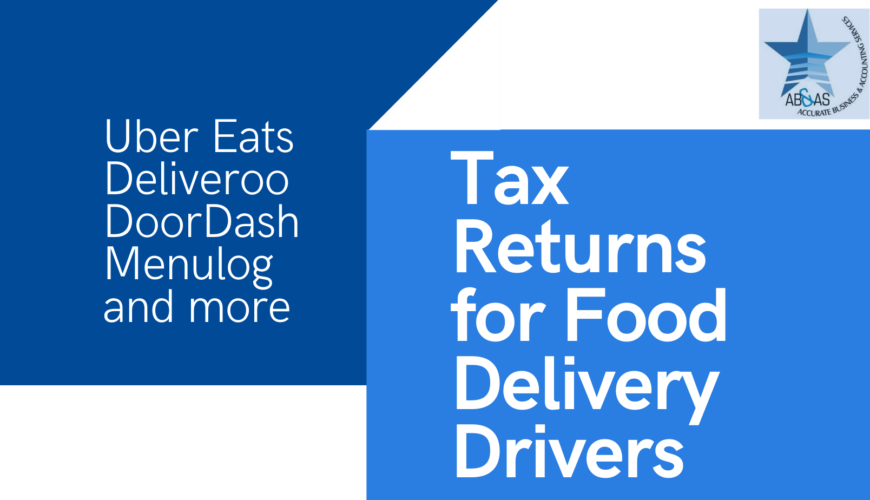The food industry has become very lucrative in Australia. With people becoming busier by the day, ordering food has become the norm. This has led to the increase of food delivery companies like Deliveroo, Menulog, and UberEats. Just as with all other income-generating activities, if you are a food delivery service provider, there are tax obligations. However, since most people are not aware of the process of lodging the tax return, we will take a look at it.
It is important to start off by making it clear that any money earned through food delivery services is assessable income. You will be required to declare such income in your annual tax returns. The issue of GST registration seems to be confusing for most food delivery drivers. When working with companies like Ola, DiDi and Uber, which are referred to as rideshare drivers, you are expected to register for GST. However, for food delivery services this is not required unless you are earning more than $75,000 per year.
There are some drivers as rideshare drivers and food delivery drivers to make ends meet. If this is the case, the tax computation can be slightly complicated. For instance, you will be expected to register for GST if you split between food delivery and ridesharing. As such, all your income-generating activities will be subjected to GST obligations including food delivery.
Nonetheless, irrespective of the amount of money you will make as a food delivery driver from Uber Eats, Menulog, Deliveroo, DoorDash or any other food delivery company there is a legal requirement to declare the income to the ATO. If you need any assistance, Accurate Business & Accounting Services is here to help you.
Food Delivery Drivers Tax Returns Lodgment
In order to be able to work as a food delivery driver, you need to acquire the ABN. From a tax point of view, you are not an employee of the rider companies and as such, you are paid as an independent contractor. You are responsible for lodging your tax returns and making claims for deductions. The amount of money you earn from the food delivery business should be declared in your tax return. There are so many uncertainties that you may have as a driver and this is why you should come to us for help.
Food Delivery Tax Deductions
Food delivery has become a major industry with so much money. Like other forms of business, there are quite a number of tax deductions that you can claim. This is a great way to maximize the tax refund that you will get. Some of the tax deductions that you can make include:
- Parking fees
- Tolls
- Commissions paid to the platform
- License and registration renewal
- Car maintenance expenses
- Phone bills
- Safety equipment
- Insurance
- Car cleaning costs
If you are planning on making tax deduction claims, you should make a point of keeping proper records. All receipts, bank statements, and other documentation will be required to make the claims. It is also important to have an income statement from the food delivery business. The Australian Taxation Office is keen on tax deduction claims as there are taxpayers who try to make claims that are higher than the actual. It is important to note that the ATO is getting data from the food delivery companies and as such, you cannot cheat the system.
Accurate Business & Accounting Services has a great team of tax experts that will help you with the tricky subject of taxation. If you are an UberEats driver, talk to us and learn of all the tax deductions that you should be claiming. Contact us and book an appointment.

